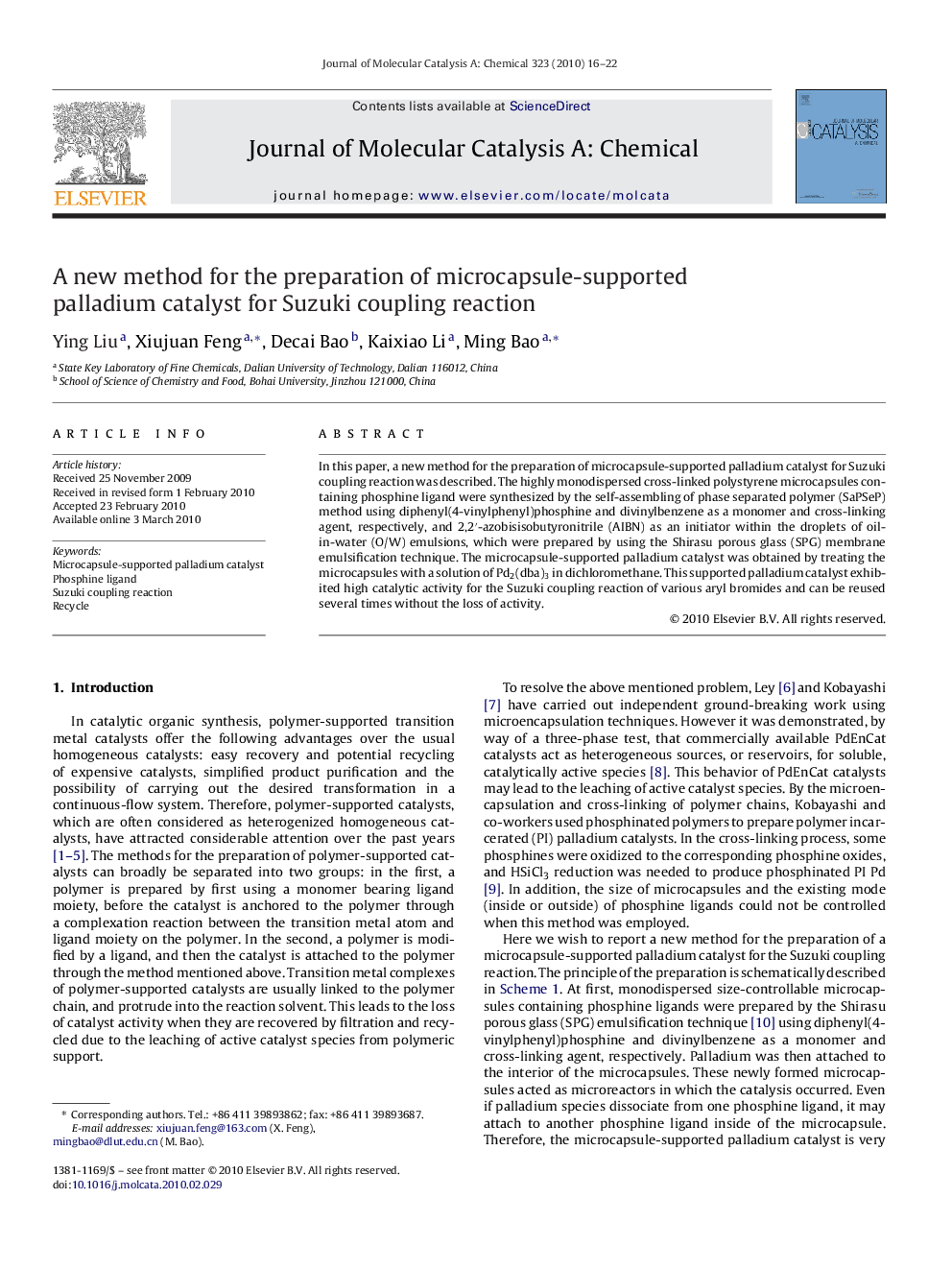| Article ID | Journal | Published Year | Pages | File Type |
|---|---|---|---|---|
| 66799 | Journal of Molecular Catalysis A: Chemical | 2010 | 7 Pages |
In this paper, a new method for the preparation of microcapsule-supported palladium catalyst for Suzuki coupling reaction was described. The highly monodispersed cross-linked polystyrene microcapsules containing phosphine ligand were synthesized by the self-assembling of phase separated polymer (SaPSeP) method using diphenyl(4-vinylphenyl)phosphine and divinylbenzene as a monomer and cross-linking agent, respectively, and 2,2′-azobisisobutyronitrile (AIBN) as an initiator within the droplets of oil-in-water (O/W) emulsions, which were prepared by using the Shirasu porous glass (SPG) membrane emulsification technique. The microcapsule-supported palladium catalyst was obtained by treating the microcapsules with a solution of Pd2(dba)3 in dichloromethane. This supported palladium catalyst exhibited high catalytic activity for the Suzuki coupling reaction of various aryl bromides and can be reused several times without the loss of activity.
Graphical abstractHighly monodispersed microcapsules containing phosphine ligand were synthesized and palladium was then attached to the interior of the microcapsules. These microcapsules acted as microreactors in which the catalysis occurred.Figure optionsDownload full-size imageDownload high-quality image (54 K)Download as PowerPoint slide
